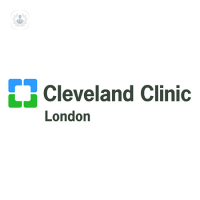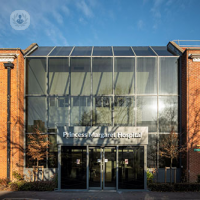What is erectile dysfunction?
Erectile dysfunction is the difficulty or inability to achieve or maintain an erection of the penis that results in a satisfactory sexual relationship. It is also known as impotence. Erectile dysfunction is extremely common and increases with age. If it happens frequently, you should see a doctor.

What symptoms does it present?
The main symptom of erectile dysfunction is a change in the quality of the erection. If the cause is physical, you usually have the inability to have an erection when you wake up in the morning. Erectile dysfunction can affect both your ability to have an erection and the length of time an erection lasts.
Erectile dysfunction can also involve a loss of sexual desire.
What causes erectile dysfunction?
There are many causes of erectile dysfunction, including:
- Physical causes – such as diabetes, high blood pressure, obesity, the side effects of medication, alcoholism, multiple sclerosis, hormonal problems, and sleeping problems.
- Psychological causes – such as stress, anxiety, depression, or issues within your relationship.
Erectile dysfunction can also occur after treatment, including surgery on the spinal cord or prostate.
Your chances of being affected by erectile dysfunction increase with age, drug or alcohol use, and are higher if you are overweight.
What is the usual age for erectile dysfunction?
Erectile dysfunction is more common as people age. It's been found that approximately 40 per cent of men are affected at age 40 and nearly 70 per cent of men are affected in their seventies.
Can erectile dysfunction be prevented?
You cannot always prevent erectile dysfunction, but you can reduce your risk by:
- giving up smoking;
- maintaining a healthy weight;
- getting regular exercise.
How is erectile dysfunction diagnosed?
In most cases diagnosis simply involves asking you about your symptoms and when they started. If the doctor suspects a physical cause that needs investigating, they might refer your for follow-up tests, such as blood tests or an ultrasound.
How can you fix erectile dysfunction?
Treatment depends on whether there is an underlying cause - tackling the root of the problem should improve symptoms.
Beyond this the most common form of treatment for erectile dysfunction is medication, which is widely available and effective in making it easier to get an erection. If the problem is low testosterone levels, your treatment may involve hormone replacement therapy.
If medication is not effective, other treatment options include:
- penis pumps – this may not be directly available from your doctor
- penile implants – a surgical procedure to implant rods which help you control your erections
If the problem is psychological, there are various therapies available, including:
11-13-2012 06-28-2023Erectile dysfunction
What is erectile dysfunction?
Erectile dysfunction is the difficulty or inability to achieve or maintain an erection of the penis that results in a satisfactory sexual relationship. It is also known as impotence. Erectile dysfunction is extremely common and increases with age. If it happens frequently, you should see a doctor.

What symptoms does it present?
The main symptom of erectile dysfunction is a change in the quality of the erection. If the cause is physical, you usually have the inability to have an erection when you wake up in the morning. Erectile dysfunction can affect both your ability to have an erection and the length of time an erection lasts.
Erectile dysfunction can also involve a loss of sexual desire.
What causes erectile dysfunction?
There are many causes of erectile dysfunction, including:
- Physical causes – such as diabetes, high blood pressure, obesity, the side effects of medication, alcoholism, multiple sclerosis, hormonal problems, and sleeping problems.
- Psychological causes – such as stress, anxiety, depression, or issues within your relationship.
Erectile dysfunction can also occur after treatment, including surgery on the spinal cord or prostate.
Your chances of being affected by erectile dysfunction increase with age, drug or alcohol use, and are higher if you are overweight.
What is the usual age for erectile dysfunction?
Erectile dysfunction is more common as people age. It's been found that approximately 40 per cent of men are affected at age 40 and nearly 70 per cent of men are affected in their seventies.
Can erectile dysfunction be prevented?
You cannot always prevent erectile dysfunction, but you can reduce your risk by:
- giving up smoking;
- maintaining a healthy weight;
- getting regular exercise.
How is erectile dysfunction diagnosed?
In most cases diagnosis simply involves asking you about your symptoms and when they started. If the doctor suspects a physical cause that needs investigating, they might refer your for follow-up tests, such as blood tests or an ultrasound.
How can you fix erectile dysfunction?
Treatment depends on whether there is an underlying cause - tackling the root of the problem should improve symptoms.
Beyond this the most common form of treatment for erectile dysfunction is medication, which is widely available and effective in making it easier to get an erection. If the problem is low testosterone levels, your treatment may involve hormone replacement therapy.
If medication is not effective, other treatment options include:
- penis pumps – this may not be directly available from your doctor
- penile implants – a surgical procedure to implant rods which help you control your erections
If the problem is psychological, there are various therapies available, including:


Erectile dysfunction: what is sex like with an inflatable penile prosthesis?
By Mr Rowland Rees
2025-01-15
Erectile dysfunction can be a fairly common problem, particularly amongst older men. Whilst there are several treatment options, some cases can benefit from having a penile prosthesis inserted surgically. Mr Rowland Rees, a leading urologist and male genito-urethral surgeon, explains what is involved in this procedure and what patients can expect post-op. See more


What is erectile dysfunction?
By Mr Aza Mohammed
2025-01-14
Erectile dysfunction is when a man is unable to attain or sustain an erection that is sufficient for satisfactory penetrative sexual intercourse. This can greatly impair a man’s quality of life. Leading consultant urologist, Mr Aza Mohammed, is here to walk us through erectile dysfunction and how it can be treated. See more


Benign prostate enlargement diagnosis: What it means, and what next?
By Mr Sudhanshu Chitale
2025-01-14
Benign prostate enlargement, or BPE, is a very common occurrence, but what are the steps to take if you think you have it? Here to address this issue, alongside other frequently-asked questions about BPE, is leading urologist Mr Sudhanshu Chitale. See more


Bocox™: An innovative treatment solution for erectile dysfunction
By Dr Nadia Yousri
2025-01-13
We learn more about how erectile dysfunction can be treated with Botox in this informative guide from Dr Nadia Yousri, a highly esteemed OB-GYN surgeon, aesthetic gynaecology and sexual medicine specialist consultant, and regenerative cosmetic specialist. See more
Experts in Erectile dysfunction
-
Mr Gordon Muir
UrologyExpert in:
- Prostate
- Prostate cancer
- Erectile dysfunction
- Prostatectomy (prostate removal)
- Circumcision
- Frenuloplasty
-
Mr Simon Bott
UrologyExpert in:
- PSA test
- Prostate cancer
- Benign prostate enlargement
- Urinary tract infection
- Kidney stones
- Erectile dysfunction
-
Professor Francis Chinegwundoh MBE
UrologyExpert in:
- Prostate cancer
- Benign prostate enlargement
- Medicolegal
- Hydrocele
- Erectile dysfunction
- Vasectomy
-
Mr Rono Mukherjee
UrologyExpert in:
- Urinary tract infection
- Benign prostate enlargement
- Kidney stones
- Urinary incontinence
- Erectile dysfunction
- Circumcision
-
Mr Mohamed Asad Saleemi
UrologyExpert in:
- Benign prostate enlargement
- Kidney stones
- Prostate cancer
- Urinary tract infection
- Erectile dysfunction
- Haematuria (blood in the urine)
- See all

Cleveland Clinic Portland Place Outpatient Centre
Cleveland Clinic Portland Place Outpatient Centre
24 Portland Place, W1B 1LU
No existe teléfono en el centro.
By using the telephone number provided by TOP DOCTORS, you automatically agree to let us use your phone number for statistical and commercial purposes. For further information, read our Privacy Policy
Top Doctors

London International Patient Services (LIPS)
London International Patient Services (LIPS)
5 Devonshire Place, W1G 6HL
No existe teléfono en el centro.
By using the telephone number provided by TOP DOCTORS, you automatically agree to let us use your phone number for statistical and commercial purposes. For further information, read our Privacy Policy
Top Doctors

The Princess Margaret Hospital - part of Circle Health Group
The Princess Margaret Hospital - part of Circle Health Group
Osborne Rd, Windsor SL4 3SJ
No existe teléfono en el centro.
By using the telephone number provided by TOP DOCTORS, you automatically agree to let us use your phone number for statistical and commercial purposes. For further information, read our Privacy Policy
Top Doctors
-
Cleveland Clinic Portland Place Outpatient Centre
24 Portland Place, W1B 1LU, Central LondonExpert in:
- Diagnosis of Cancer
- Diagnostics
- Women’s health
- Sports Medicine
- General practice
- Health check up
-
London International Patient Services (LIPS)
5 Devonshire Place, W1G 6HL, W1G Marylebone LondonExpert in:
- Orthopaedic spinal surgery
- Plastic surgery, reconstructive and aesthetics
- Hand and wrist
- Otolaryngology
- Foot and ankle
- Knee
-
The Princess Margaret Hospital - part of Circle Health Group
Osborne Rd, Windsor SL4 3SJ, WindsorExpert in:
- Brachytherapy
- Cardiology
- General Surgery
- Orthopaedic surgery
- Robotic Surgery
- Dermatology
- See all
- Most viewed diseases, medical tests, and treatments
- Menopause support
- Alzheimer's disease
- Tubal factor infertility
- Complex endometriosis
- Fertility preservation
- Female infertility
- Ovulatory disorders
- Surrogacy
- Peripheral nerve block
- Pelvic ultrasound








